Made in India: 10 brands you must watch out for in 2021
As we draw the curtains on one of the most tumultuous years ever, SMBStory brings you 10 Indian Made in India brands ready to usher 2021 with new ideas, research, and innovation.
It is safe to say that 2020 has been a year like no other. Indian brands have weathered numerous storms to prevent toppling from the impact of the coronavirus pandemic that brought the entire world to a standstill.
Now, as we draw the curtains on this year, which will go down in history as one of the most tumultuous ones, SMBStory lists 10 Made in India brands that survived the pandemic and are ready to usher 2021 with vigour.
The list has been curated keeping in mind several factors — brands carving a niche in segments dominated by foreign players, companies that innovated in the midst of the pandemic, did not lay-off employees, and continued to grow and scale.
Solethreads

Solethreads Founder and CEO Sumant Kakaria
In 2018, Gaurav Chopra, Sumant Kakaria, Vikram Iyer, and Aprajit Kathuria started to meet the demand for branded flip flops. A youth-centric D2C footwear brand, Solethreads is aimed at disrupting the open footwear category.
It focuses on creating innovative and quirky designs for its flip flops. The bootstrapped brand launched on major ecommerce platforms in December 2019, and claims to have crossed Rs 50 lakh GMV on Amazon in just four months, and was recognised by the ecommerce platform as an emerging brand.
“Overall, we reached Rs 1 crore revenue in seven months of launch,” Sumant said, adding: “We are a fully ‘Made in India’ brand with zero dependence on China or any other country for imports or any components.”
Today, the brand is now able to make a healthy 30 percent to 35 percent gross profit, which it plans to take to over 40 percent. “Our revenue is already growing at 40 percent month-on-month, with a monthly GMV run rate of Rs 2 crore,” Sumant concludes.
CC Tea
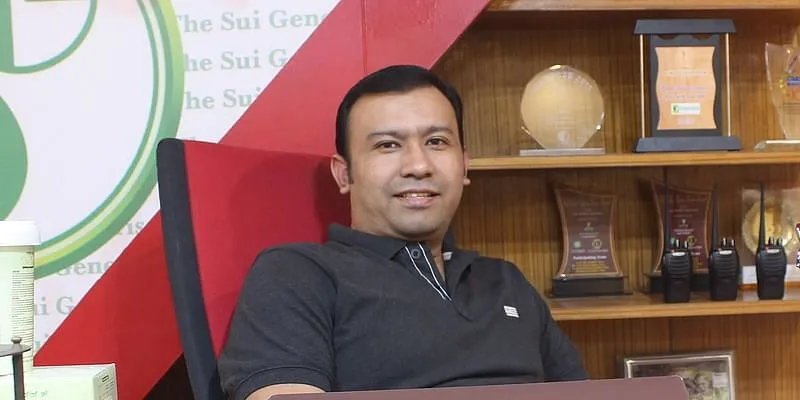
Ragesh Keisham, Founder, CC Tea
Saddled with debt, Ragesh Keisham needed a venture that would generate significant income. It was under these dire circumstances that he came up with an out-of-the-box idea to make tea out of lemongrass. In 2011, he launched the brand under the parent company SuiGeneris Agronomy, which he set up in 2010.
“I made 200 packets of the tea myself and launched CC Tea. Within five minutes, all 200 packets were sold locally. Our initial investment was around Rs 5 lakh. Today, with the popularity of our lemongrass tea, the brand has grown and recorded Rs 8 crore turnover in 2019-20,” he told SMBStory.
CC Tea’s parent company SuiGeneris owns and manages 350 acres of lemongrass fields in Imphal. It has acquired an additional 500 acres for cultivation, and at present, is expanding production to meet the growing demand for CC Tea.
In 2017, the business received an investment of nearly $550,000 from Netherlands-based fund C4D Partners. Now, it plans to raise another round of funding to launch a second factory in Nongpok Sekmai village, which is about 30 km from Imphal.
The entrepreneur also brings up how resilient CC Tea was during the COVID-19 pandemic. Despite taking a hit and shutting its factory for six months, the business did not lay off anybody, he claims. “The staff of the company proved their loyalty by earning a reduced salary for many months and kept us afloat,” he said.
DailyObjects

Pankaj Garg, Founder and CEO, Daily Objects
Founded by Pankaj Garg, is a tech and lifestyle brand that is manufacturing accessories for your electronics. From trendy mobile cases to earphone holders, along with other lifestyle products such as bags, wallets, backpacks, etc., the brand has grown to be a name to reckon with in the market.
During the late 1990s, when the world was witnessing the so-called ‘dotcom bubble burst’, Panakaj was convinced about the great power of the internet and how it would influence the coming times.
He chose to quit his job and started working with his friend on a startup in 2009 called SalesDekho.com, a portal that listed companies giving discounts in Ahmedabad.
In the next two years, Pankaj saw a gap in the mobile accessories market. He said, “I saw that the main product (mobile phones, earphones, laptops) is easily available, but its accessories are not in terms of right quality and price.”
Pankaj converted the resources of SalesDekho.com into DailyObjects, which was launched in 2012 with a new vision. Initially, he would sell other brands’ accessories on his platform. However, he realised that having your own private label is paramountly important. Finally, in 2014, he removed all brands from his platform and started manufacturing and selling his own products.
The company clocked Rs 24 crore in FY20 and is expected to close Rs 40 crore in the coming year.
Clensta
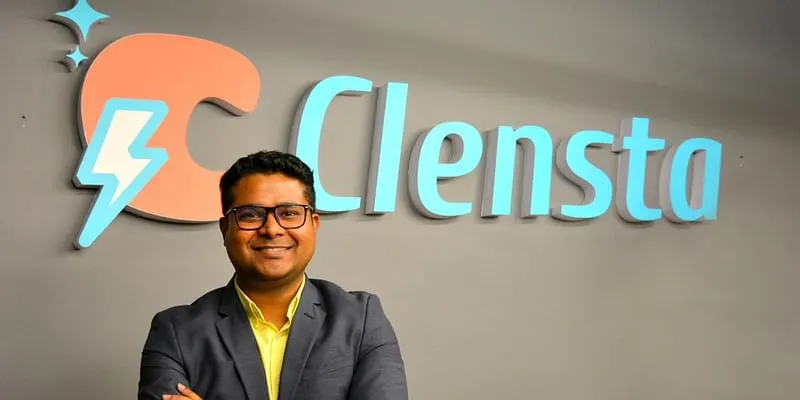
Founder and CEO, Puneet Gupta, Clensta
Puneet Gupta, a sales and marketing graduate from IIM Calcutta started his career with the US-based technology and manufacturing company Honeywell.
While working in the sector for eight years, he closely observed the unhygienic conditions of the soldiers working in extreme weather conditions. The challenge of not being able to maintain personal hygiene (like not bathing for days) led Puneet to develop waterless technology products in 2016 under the brand name Clensta.
Situated in IIT Delhi’s Biotechnology Business Incubation Facility, has developed a waterless body bath and shampoo that can be used by defence personnel, patients, elderlies, and adventure enthusiasts to take baths without water while maintaining proper hygiene.
It has developed a simple formulation devoid of alcohol, SLS, and any other harmful ingredients. These products can be directly applied to hair and body, massaged, and dried off using a towel, without any use of water. Clensta has raised undisclosed angel investments for scaling its product and portfolio from shareholders and investors, including Sanjeev Jain, an IIT Delhi alum and a seasoned angel investor, and Indian Angel Network and its maiden VC fund - IAN Fund.
The Delhi-based company rakes in an annual turnover of Rs 3.5 crore.
Paramount Surgimed

Shaily Grover, Founder, Paramount Segimed Pvt Ltd.
Paramount Surgimed was started in 1993 by Shaily Grover to manufacture surgical blades, adult diapers, and underpads.
Twenty years into the business, Paramount Surgimed now exports to over 80 countries. In India, it supplies to major hospitals with a nationwide network of 40 distributors and 400 dealers.
Taking advantage of the coronavirus pandemic which brought the whole world to a standstill, the company also diversified and started two production lines into manufacturing three-ply and N95 masks.
Insigne Carpets
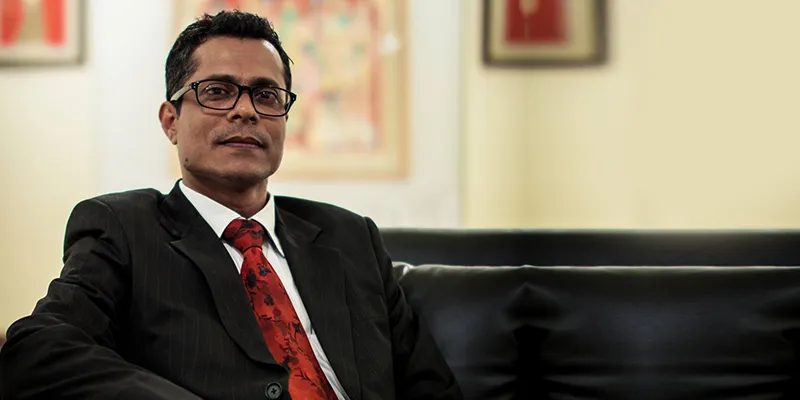
Asif Rahman, CEO, Insigne Carpets
Asif Rahman’s journey in the carpet industry started in 1988. After graduating from Calcutta University, Asif started working at a rug store outside Kolkata’s Park Street.
Soon, he was promoted to the post of a sales executive in the place. He gained in-depth knowledge about carpets — from colours, budgets, how to procure raw materials and maintain backend stock, market needs, and much more.
Asif also worked as Director of Operations (South East Asia) with Tai Ping, a Hong Kong-based carpet manufacturing company. But, he realised he wanted to dive into entrepreneurship.
In 2011, he launched with a primary investment of Rs 35 lakh amassed from personal savings. The Gurugram-based luxury brand is an end-to-end carpet solutions provider that offers consultation, manufacturing, installation of carpets and other facilities.
The company has an impressive line up of clientele. Insigne Carpets has designed and created carpets for luxury projects like La Samaritaine (Paris), The Pierre (New York), Wynn Casino (Las Vegas), Salalah International Airport (Oman), among many others.
Elanpro
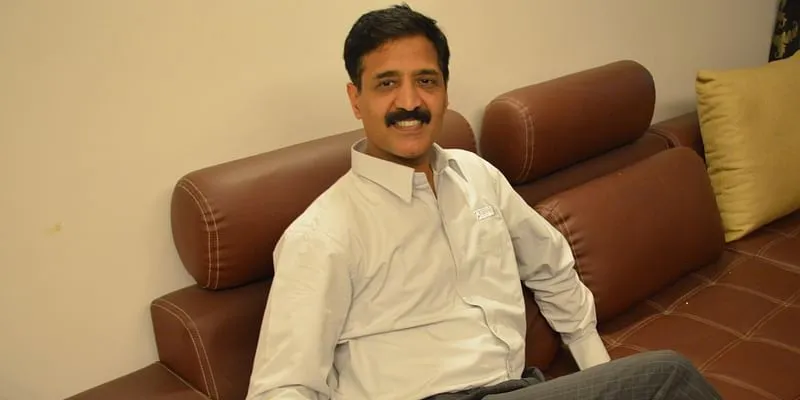
Sanjay Jain, Director, Elanpro
Started in September 2009 by industry veterans including Sanjay Jain, Ranjan Jain, and Shashank Joshi, offers products such as chest freezers and coolers.
The idea to start a company in the segment came to Sanjay somewhere around 2004 when he realised a significant vacuum of quality services and products in the commercial refrigeration segment.
The company claims to have clocked a turnover of Rs 145 crore in FY 2018-2019, but due to the pandemic, it recorded Rs 115 crore turnover this financial year.
Also, in times of a crisis like COVID-19, when some of the well-established companies in India are firing and laying off staff, Elanpro claims to have had no layoffs in the last four months. In fact, Sanjay says, the company is in a good position because of the way it has managed its cash flows.
Jivo Wellness

Gurpreet Singh, Managing Director, Jivo Wellness
was started by Baba Iqbal Singh and his four disciples — Ravinder Pal Singh Kohli, Gurpreet Singh, Jasbir Singh and Amandeep Singh in 2010. The company is a major supplier of canola oil across the country. After initial hiccup, the product started getting acceptance in the Indian market. Infact, giants like Reliance, Walmart and Big Bazaar approached Jivo for a place on their shelves.
Last year, Jivo Wellness clocked a turnover of Rs 163 crore. Gurpreet says that Jivo has an 80 percent market share in the Indian canola oil market.
It is present in 15 states in kiranas, retail stores, modern stores, ecommerce platforms like Amazon, etc.
Noise
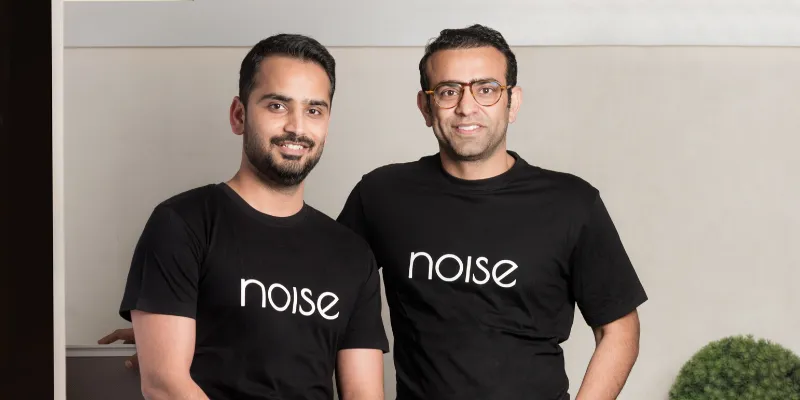
Gaurav Khatri (left) and Amit Khatri (right), Founders, Noise
In 2014, Gaurav Khatri and his cousin Amit Khatri pooled in their savings of Rs 7.18 crore ($1 million) to start , a consumer electronics brand that sells smartphone covers, smart wearables, Bluetooth earphones, portable speakers, and more.
Gaurav and Amit tied up with Chinese manufacturers to make the smartphone covers, and sold them in India. Riding on the wave of skyrocketing smartphone sales on ecommerce platforms was a good idea, at least at first. Gaurav claims Noise became one of the best sellers in the mobile accessories category in the first few years. According to International Data Corporation (IDC), Noise has a 28.5 percent market share in the watches segment.
“We aspire to be the category leader in the smart hearables and wearables segments with our products. In the month of October and November the brand observed a $140mn ARR,” Gaurav says.
Mamaearth
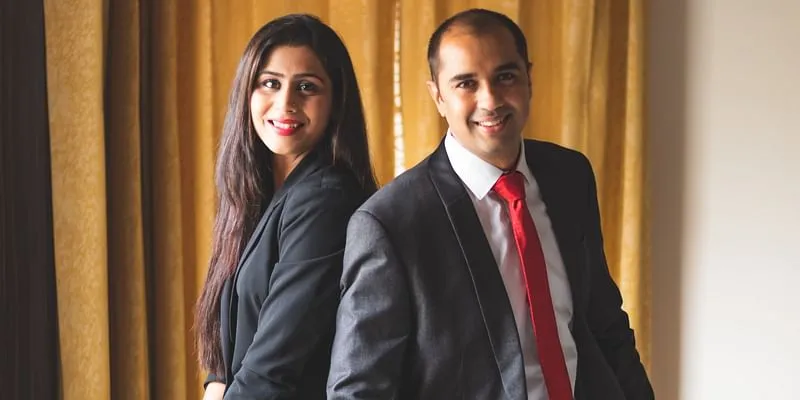
Ghazal Alagh and Varun Alagh, Co-founders, Mamaearth
When Ghazal Alagh and Varun Alagh were expecting their baby, they wanted to ensure that they could do everything to keep their baby safe. Disappointed by the limited to no chemical-free products in the market, the duo decided to create a brand — by a parent for other parents — in 2016 in Gurugram.
MamaEarth uses the best available ingredients – natural, plant-based or manmade, which are both certified safe as well as effective. The ingredients are procured from the best sources around the world, which are ISO, GMP and Non-GMO compliant, Varun adds.
In just four years, Mamaearth became Asia’s first brand to get the MadeSafe certification for its toxin-free products. The company is aiming at reducing parental stress and is continually improving and innovating to make the world a safer place for both the babies and their parents.
The brand crossed the Rs 100 crore turnover mark in just four years.
Edited by Saheli Sen Gupta









